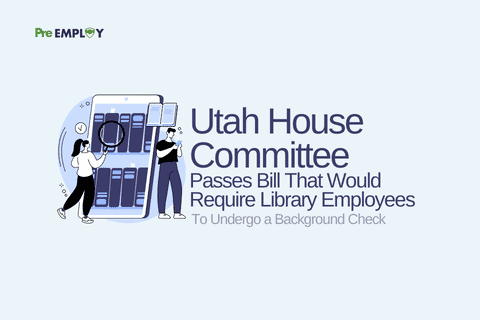Utah House Committee Passes Bill That Would Require Library Employees To Undergo a Background Check

February 16, 2023
The Utah House Educational Committee has approved a new bill that obligates library systems to perform criminal background checks on their staff. Consequently, libraries must establish guidelines for background checks, and those that do not conduct criminal background checks on their employees will lose their state funding.
The House Education Committee unanimously passed the new bill, which included a statement from a committee member highlighting the significance of conducting background checks. The statement underscored the criticality of screening criminal backgrounds, particularly in libraries, as parents often entrust their children to these institutions, which they perceive as safe havens.
In 2022, a state representative introduced a preliminary version of this bill, which did not pass the committee’s scrutiny. The state representative, a former school principal, subsequently collaborated with librarians to revise the bill, persisting in his efforts until it garnered their endorsement.
One of the modifications incorporated a fiscal note, which projected an expense of $15,000 for the Department of Public Safety of the state to perform background checks on personnel employed in smaller, rural libraries. In the absence of this fiscal note, the responsibility of financing the background checks would have fallen on the local libraries or their employers.
Another committee member asked if some more populous rural counties could become eligible for financial assistance. This member cited the extensive distances required to travel in these counties. Furthermore, he heard interest in adding fourth-class counties. However, this eligibility would require adding another fiscal note to the bill.
The introducing committee member underscored that all individuals he collaborated with underwent background checks, citing the paramount concern for children’s safety in libraries. His concerns centered on the possibility of hiring individuals with criminal backgrounds, including sex offenders, which could pose a potential threat to children.
The House is expected to receive the bill for further deliberation shortly. Pending approval from both chambers and the governor, the bill could become effective as early as July 1, 2024.
Running background checks on potential employees is crucial, especially if they will work with vulnerable populations. The best way for employers to do this is by partnering with a background check company they can trust to help them throughout the process.
Pre-employ makes background checks easy and reliable. Speak with a compliance expert today.
